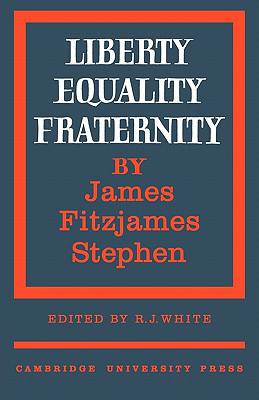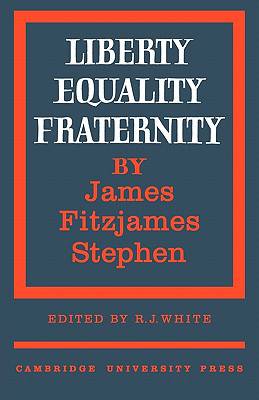
- Afhalen na 1 uur in een winkel met voorraad
- Gratis thuislevering in België vanaf € 30
- Ruim aanbod met 7 miljoen producten
- Afhalen na 1 uur in een winkel met voorraad
- Gratis thuislevering in België vanaf € 30
- Ruim aanbod met 7 miljoen producten
Zoeken
Omschrijving
R. J. White's edition, which was originally published in 1967, made Fitzjames Stephen's classic available for the first time since 1914. The editor made use of the 1874 second edition which included Stephen's notes in reply to his original critics. Stephen's work is written as a systematic denunciation of John Stuart Mill's political thought. It is thus of great importance in the history of Utilitarianism, and also as the most forthright and systematic of the Victorian attacks on democracy. Stephen's work is also important for its repudiation of the progressive attitudes to religion and morality characteristic of the Comptist philosophy which had attracted Mill. Stephen's aim was to show that 'no room is left for the order of ideas hinted at by the phrase 'Liberty, Equality, Fraternity''. He argues his case with legal precision and considerable rhetorical powers.
Specificaties
Betrokkenen
- Auteur(s):
- Uitgeverij:
Inhoud
- Aantal bladzijden:
- 300
- Taal:
- Engels
- Reeks:
Eigenschappen
- Productcode (EAN):
- 9780521180825
- Verschijningsdatum:
- 17/02/2011
- Uitvoering:
- Paperback
- Formaat:
- Trade paperback (VS)
- Afmetingen:
- 140 mm x 216 mm
- Gewicht:
- 381 g

Alleen bij Standaard Boekhandel
+ 129 punten op je klantenkaart van Standaard Boekhandel
Beoordelingen
We publiceren alleen reviews die voldoen aan de voorwaarden voor reviews. Bekijk onze voorwaarden voor reviews.







